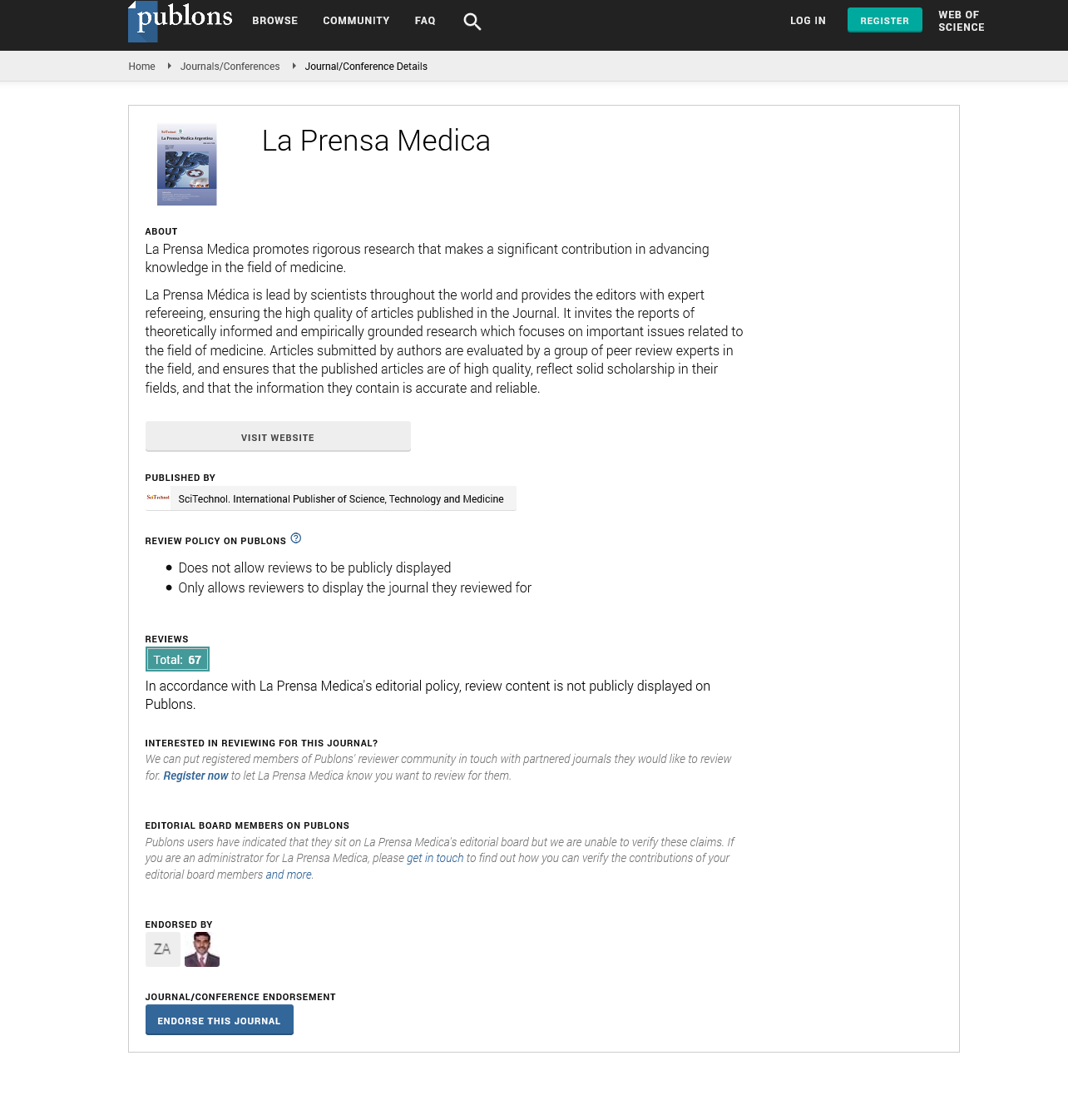Review Article, Prensa Med Argent Vol: 101 Issue: 2
Role of Lactic Acid Bacteria as Probiotics in Health and Disease
Abstract
Role of Lactic Acid Bacteria as Probiotics in Health and Disease
In natural environment a delicate symbiosis evolves between endogenous bacteria and their host is very crucial for maintaining the internal flora of organisms. It stimulates immune system to respond rapidly to infection with pathogens and through bacterial antagonism it inhibits the colonization of the gut by harmful or pathogenic bacteria. A dominant flora represents 90% of the population, essentially composed of Bifidobactrium and Lactobacilli. In group they are called as Lactic Acid Bacteria (LAB) and are collectively called probiotics. These antibacterial effects of LAB are possible due to different antimicrobial compounds like organic acids, hydrogen peroxide (H2O2), carbon dioxide (CO2), fatty acids, reuterin, bacteriocins and other low molecular mass compounds produced by them. Probiotics is playing an important role in prevention of many bacterial diseases also. Probiotic bacteria may add a low-cost, low risk layer of protection from infection and disease.
 Spanish
Spanish  Chinese
Chinese  Russian
Russian  German
German  French
French  Japanese
Japanese  Portuguese
Portuguese  Hindi
Hindi 

